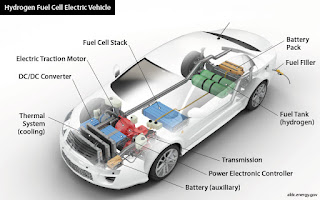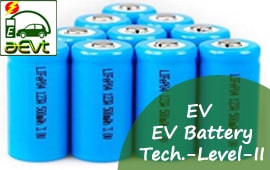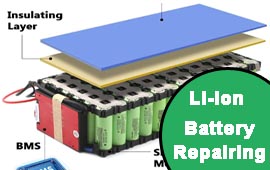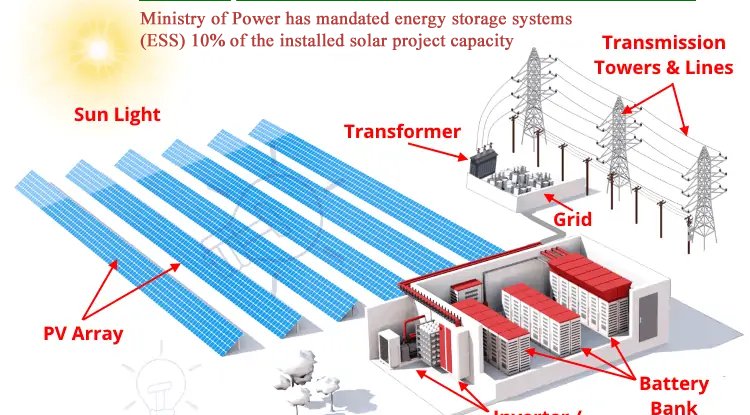Hydrogen-Powered EVs in the Race to Sustainability
PR Newswire: The global transition toward sustainable transportation has ignited a race to develop cleaner, more
efficient alternatives to traditional gasoline-powered vehicles. One promising contender in this green revolution is hydrogen fuel technology in electric vehicles (EVs). In this article, we explore a successful business case that has embraced hydrogen fuel cells, providing concrete data, facts, and figures that underscore its potential for cost savings and emissions reduction.

The global transition toward sustainable transportation has ignited a race to develop cleaner, more efficient alternatives to traditional gasoline-powered vehicles. One promising contender in this green revolution is hydrogen fuel technology in electric vehicles (EVs). In this article, we explore a successful business case that has embraced hydrogen fuel cells, providing concrete data, facts, and figures that underscore its potential for cost savings and emissions reduction. Additionally, we delve into the critical role of infrastructure development in supporting hydrogen-based EVs and include relevant data on the growth of hydrogen refueling stations, envisioning a world where hydrogen-based EVs claim a significant market share.
The Power of Hydrogen Fuel Cells:
Hydrogen fuel cells operate on a simple principle: they convert hydrogen gas into electricity, emitting only water vapor and heat as byproducts. This emission-free process addresses one of the most pressing challenges of our time - reducing greenhouse gas emissions.
Business Case Spotlight: Toyota's Mirai
A stellar example of a company fully invested in hydrogen fuel cell technology is Toyota, with its groundbreaking Mirai. The Mirai has achieved remarkable success, not only for its environmental benefits but also for its economic advantages.
Cost Savings and Efficiency:
Lower Operating Costs: A crucial benefit of hydrogen-based EVs is the reduction in operating costs. According to Toyota, the Mirai boasts an impressive 66 miles per kilogram of hydrogen, offering substantial savings compared to traditional gasoline vehicles.
Maintenance Savings: Hydrogen fuel cells have fewer moving parts than internal combustion engines, resulting in reduced maintenance requirements and lower costs over the vehicle's lifespan.
Emissions Reduction:
Zero Tailpipe Emissions: Toyota's Mirai produces no tailpipe emissions, contributing to cleaner air quality and a reduced carbon footprint.
Global Impact: If a significant portion of the automotive industry adopted hydrogen fuel cells, the reduction in CO2 emissions would be substantial, aligning with global sustainability goals.
Critical Role of Infrastructure Development:
Hydrogen Refuelling Stations: One of the key challenges facing hydrogen-based EV adoption is the availability of refuelling infrastructure. The growth of hydrogen refuelling stations is pivotal in supporting the widespread use of these vehicles.
Government Initiatives: Governments and private enterprises around the world are investing heavily in the development of hydrogen infrastructure. For instance, California, a leader in green transportation, plans to have 200 operational hydrogen refuelling stations by 2025.
Current Market Size and Growth Trends:
Current Market Size: As of the latest data, the global market for hydrogen-powered vehicles is valued at approximately $1.6 billion, with thousands of vehicles sold annually.
Predicted Growth: Industry analysts forecast substantial growth in the hydrogen vehicle market, estimating it could reach $14 billion by 2030.
Potential Market Share for Hydrogen-based EVs:
Competing with Battery Electric Vehicles (BEVs): Hydrogen-based EVs are well-positioned to complement rather than compete with BEVs. They excel in long-range applications and heavy-duty vehicles, potentially claiming a significant share in these segments.
Hydrogen Infrastructure Expansion: The growth of hydrogen refuelling stations, coupled with government support and advancements in production and storage, will play a pivotal role in determining the market share of hydrogen-based EVs.
Conclusion:
In closing, the journey of hydrogen fuel technology in electric vehicles (EVs) represents a transformative leap toward a cleaner and more sustainable transportation landscape. With zero tailpipe emissions, impressive cost savings, and a growing infrastructure, hydrogen-powered EVs hold the promise of revolutionizing the automotive industry.
The success of Toyota's Mirai demonstrates that hydrogen fuel cells are not just a futuristic concept but a practical and economically viable solution. As we've seen, the advantages extend beyond reducing carbon footprints to encompass substantial operating and maintenance savings, making a compelling case for both businesses and individuals to embrace this technology.
However, to unlock the full potential of hydrogen-based EVs, it is essential to recognize the critical role of infrastructure development. The growth of hydrogen refuelling stations, backed by government initiatives and private investments, will be instrumental in driving the widespread adoption of these vehicles.
In this era of heightened environmental consciousness and the urgent need to combat climate change, hydrogen fuel technology emerges as a beacon of hope. Its potential reaches far beyond individual vehicles, extending to applications in heavy-duty transportation and industrial processes.
As we conclude, it's imperative to reinforce the importance of ongoing research, development, and investment in this promising technology. Governments, industries, and innovators must collaborate to overcome the remaining challenges, including hydrogen production, storage, and distribution, to ensure a greener and more sustainable future for generations to come. The road ahead may be challenging, but with determination and strategic investments, we can pave the way for a hydrogen-powered revolution, driving us toward a cleaner and more sustainable tomorrow.
Source: RSS Feed from
Author: Profile
Green Hydrogen: National Green Hydrogen Mission - Hydrogen Schemes & Guidelines: India has set an ambitious target to achieve a green hydrogen production capacity of 5 million tonnes by the end of the year 2030.




















